Are you considering entering into a time-sharing agreement and wondering what it entails? These arrangements can often feel overwhelming, but they offer exciting opportunities for shared ownership and memorable experiences. In this article, we'll break down the key components of a time-sharing agreement, ensuring you feel confident and informed as you embark on this journey. So, let's dive in and explore all the essential details you need to know!

Contact Information
Contact information is essential in facilitating effective communication between parties involved in a time-sharing agreement. Each party should include their full name, residential address, and phone number, ensuring clarity. Email addresses provide a secondary means of contact, and it is advisable to specify preferred methods for receiving updates or notices. Clearly documented contact information enhances accountability and fosters timely correspondence regarding shared use dates, maintenance schedules, or any disputes that may arise between time-share owners in locations such as beach resorts or mountain cabins.
Agreement Details
A time-sharing agreement, often used in vacation ownership arrangements, allows multiple parties to share access to a property, such as a resort or a vacation home. Key details include the duration of the agreement, typically ranging from a few days to several weeks each year, and specific time slots designated for each party's use. The property location, for example, a beachfront villa in Cancun, Mexico, plays a critical role in the agreement's value. Financial obligations may include an initial purchase price, annual maintenance fees, and utility costs, ensuring the property remains well-maintained. Ensuring clear communication regarding usage schedules and responsibilities is essential for a harmonious experience among all parties involved.
Schedule and Duration
A time-sharing agreement confirmation outlines the specific schedule and duration for shared usage of a property, such as a vacation home in Aspen, Colorado. This agreement typically specifies the allocation of weeks--often alternating between the two parties--as well as detailed check-in and check-out times. Important durations such as the total length of the agreement, commonly ranging from 1 to 5 years, are included as well. Each party may also agree upon maintenance responsibilities during their designated time. Additionally, potential restrictions on modifications to the schedule must be clearly defined to avoid conflicts between parties sharing usage of the amenity.
Payment Terms
Time-sharing agreement specifies the detailed payment terms, including upfront costs, recurring fees, maintenance expenses, and any related charges associated with the shared property, typically located in popular vacation destinations like Hawaii or Florida. Upfront costs often cover a down payment or initiation fee, which may range from $1,000 to $5,000 depending on the property value and ownership duration. Recurring fees usually encompass annual maintenance assessments, averaging between $400 to $800, ensuring property upkeep and services. Additionally, any special assessments for major repairs or renovations could arise, influencing overall financial obligations. Partners in the time-sharing arrangement should ensure clarity on payment deadlines, methods, as well as consequences for late payments, which could include penalties or loss of usage rights for specific periods.
Terms and Conditions
A time-sharing agreement outlines the specific terms and conditions governing the shared ownership of vacation properties. It usually includes detailed information such as the designated location, like a resort in Orlando, Florida, and the duration of usage rights, typically ranging from one week to several months per year. Owners are often required to adhere to annual fees for maintenance, which can sometimes exceed $1,000, depending on the size and amenities of the property. Responsibilities for property upkeep, booking procedures, and cancellation policies are also specified to ensure a smooth experience for all parties involved. Dispute resolution methods, such as mediation or arbitration, are frequently included to address potential conflicts amicably and effectively. Understanding these terms can significantly enhance the satisfaction and enjoyment of shared vacation experiences.

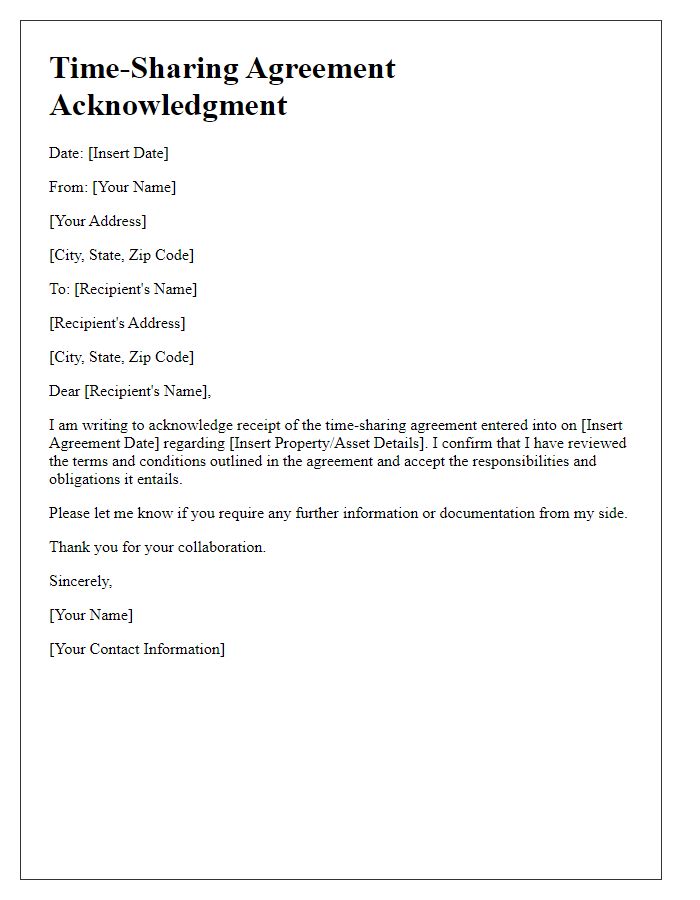
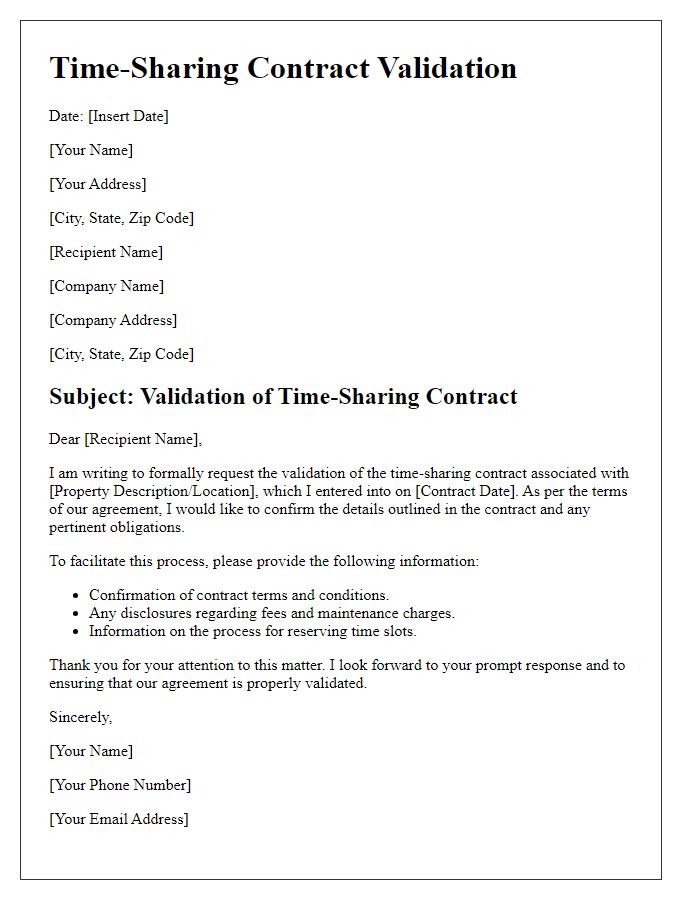
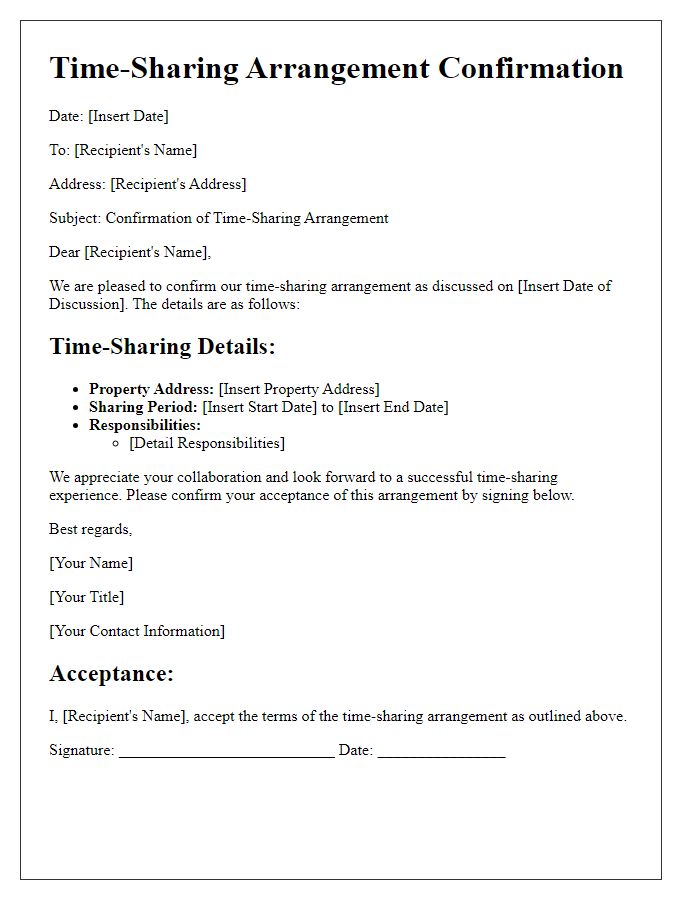
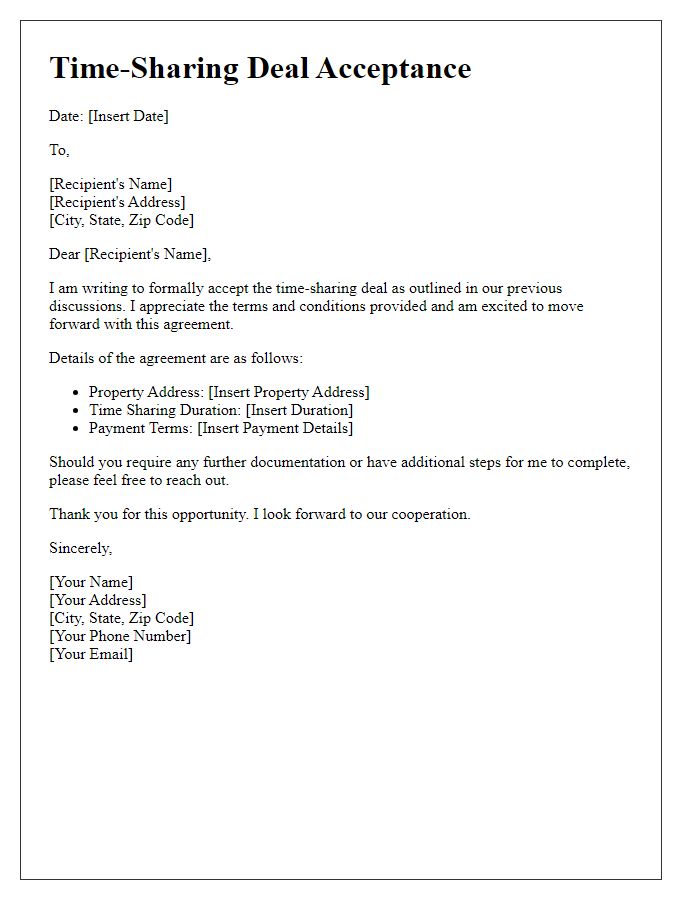
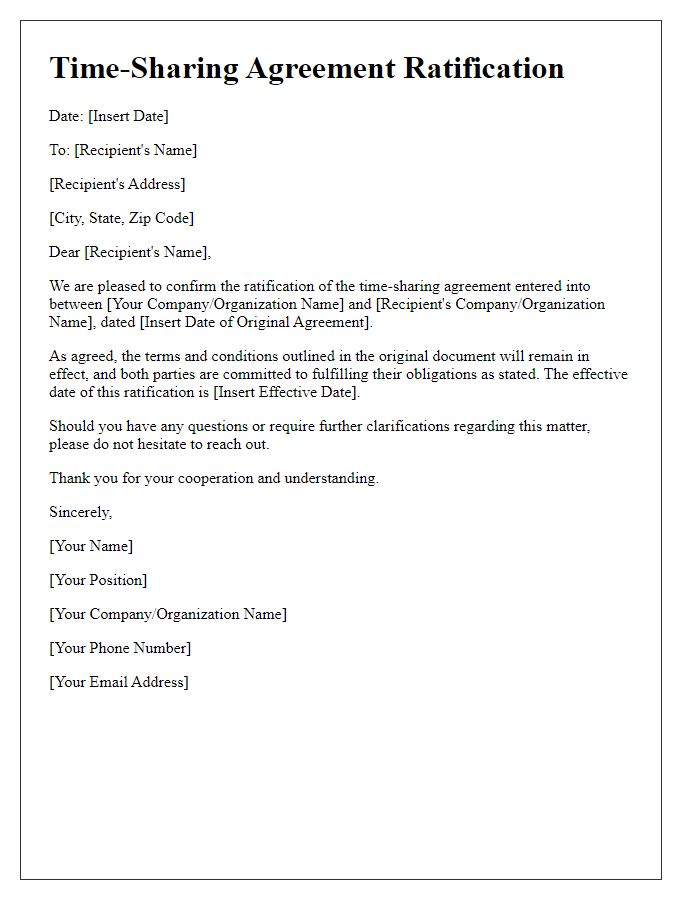
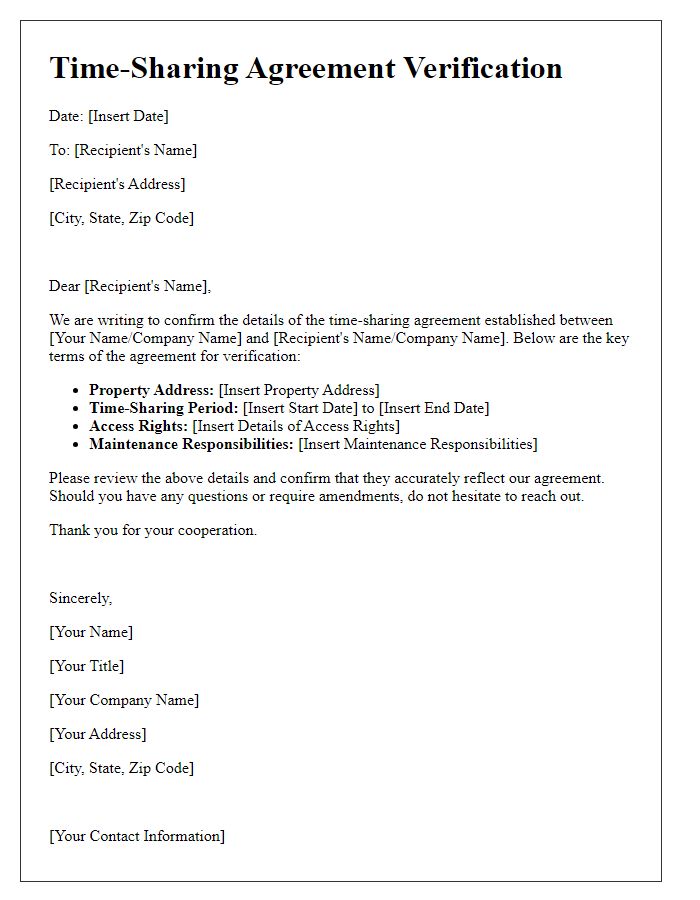
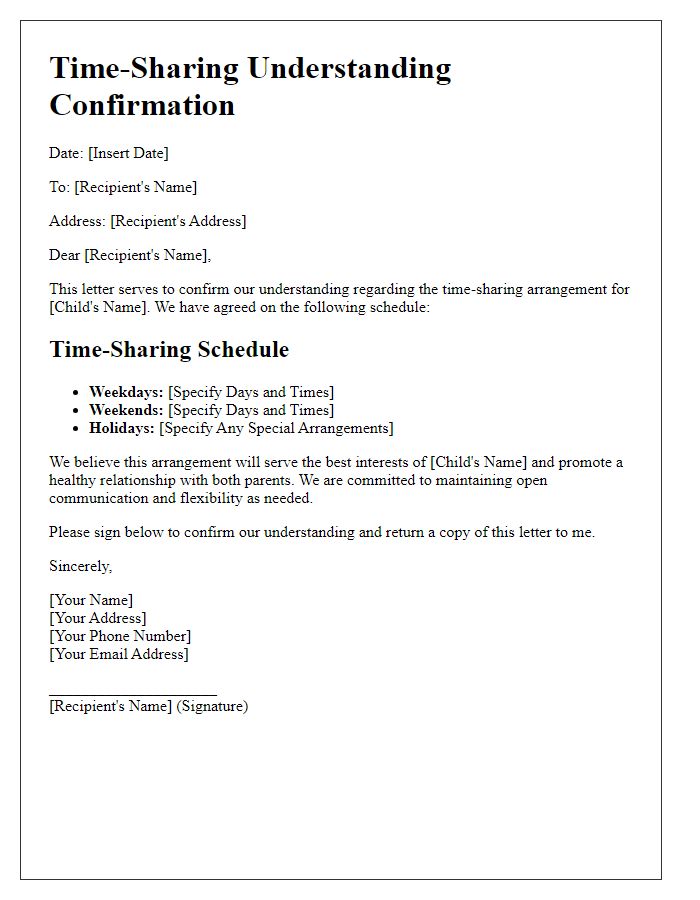
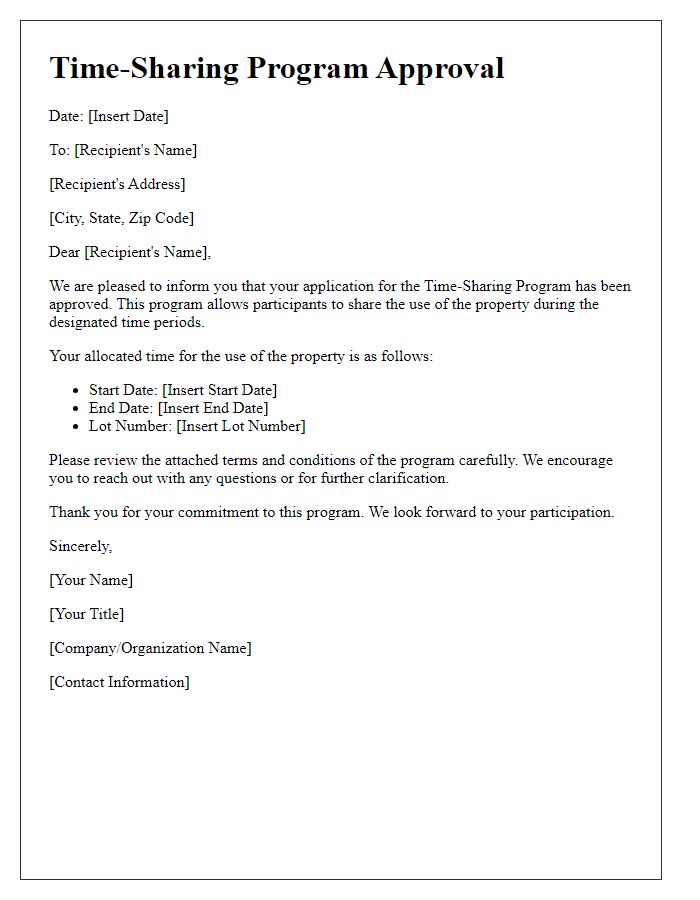
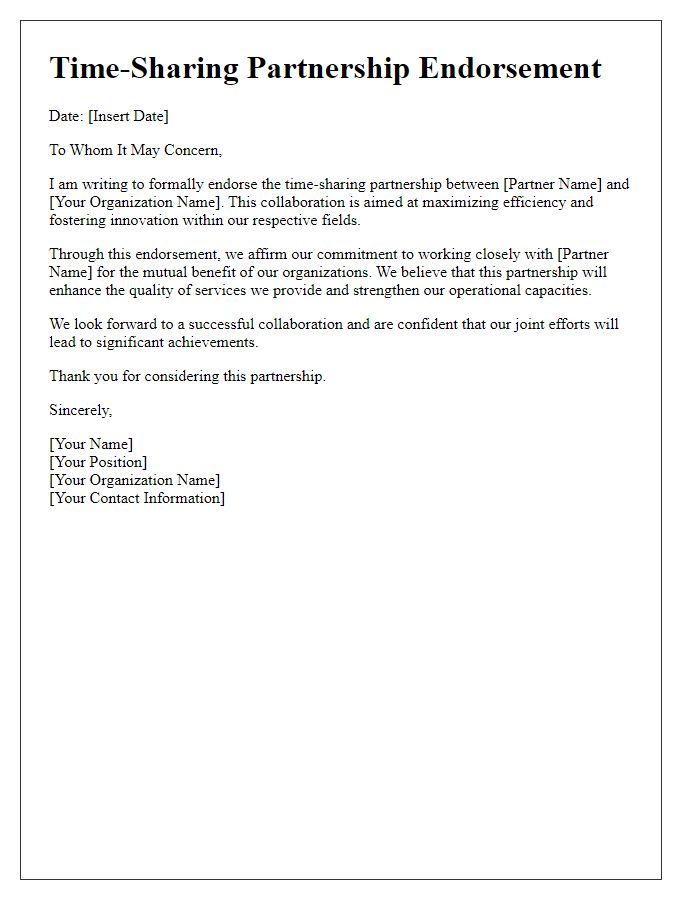
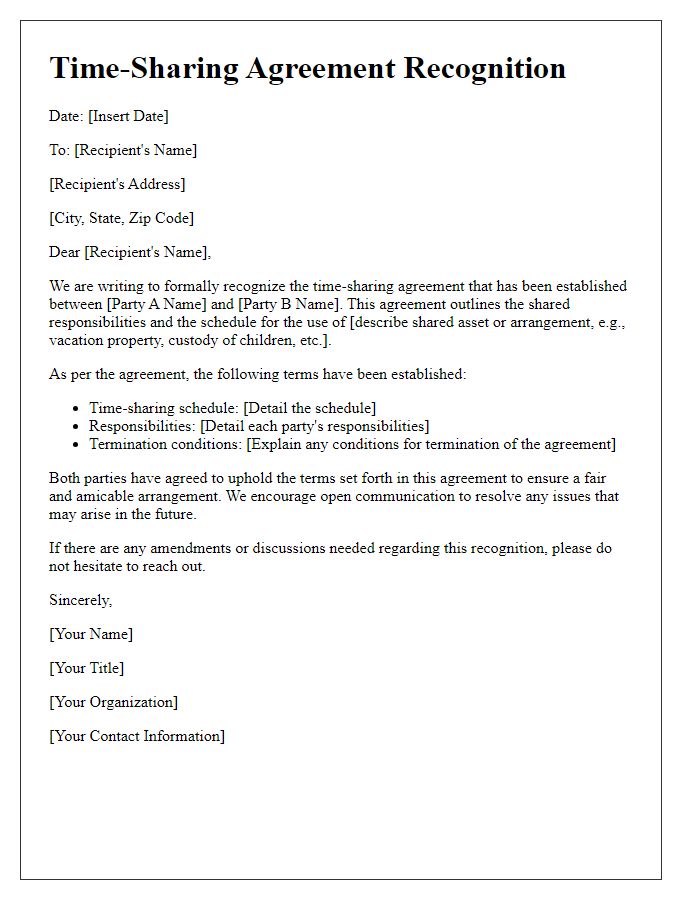


Comments